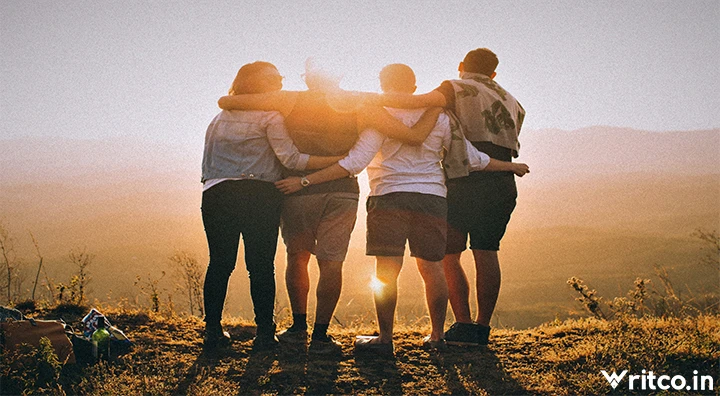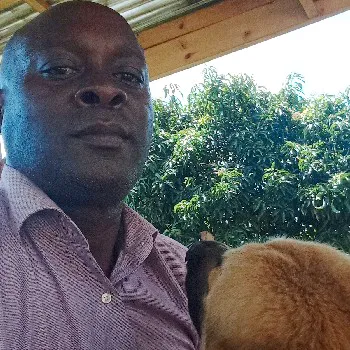How Covid-19 Impacted our Lives Forever!
#WritcoStoryPrompt51 #CovidStories
2020 and 2021 have been difficult times for everyone in the world.
Sitting on the top of an overgrown plush hill near my home in Mpigi District, reading a crumpled moth-eaten PC magazine, I gazed down and saw my small red-roofed house standing in the eucalyptus valley like a lone sentry. I smiled as I gazed at the tiny figures playing among the raised gardens. A charcoal grey puppy chased after them. I couldn't hear their giggles, but I sensed their joy.
The sun had sunk quietly on the horizon, leaving dark silvery clouds floating lazily in the sky. It was a chilly evening, and the darkness had descended now. The scorched grass was getting dump with evening dew. However, I was in no hurry to descent my favourite granite hilltop.
A lanky dark-skinned herdsman passed above me, holding stuff behind his shoulders, whistling at the stray herd of underfed cows and goats descending the hill, looking hungrier than ever. Then, a small green-yellowish frog jumped across the worn-out path and startled a black kid chewing lazily at the scorched pasture. It galloped back to its all-knowing mother for protection. My mind flashed back to the beginning of 2020 when the first wave of the covid-19 pandemic began.
It had all began with the news of a new disease from China that causes breathlessness, coughing and kills within days. A few years earlier, we had been greeted with the outbreak of swine flu, again from Asia. The virus had spread across the globe, hopping freely on the crowded air and train terminals. The international governments had halted all air transport in a bid to circumvent its rapid spread. Global trade grinded to a standstill. Everyone held their breath!
Now, another mysterious pandemic was unfolding. Most people in Uganda did not take this outbreak seriously. One group slugged their shoulders and moved on with their business, while others shrieked with joy as they anticipated more business. Most people didn't care. How wrong they were!
The first cases had finally reached Kampala, the capital city of Uganda. Patients began dying after few days in hospitals. Covid-19 infections multiplied, and more cases reached staggering figures. These numbers shocked the country, as more bedridden patients died of covid-19 rather than the cases they had. Fear escalated like a wildfire on the dry savanna grasslands. The covid-19 pandemic had finally reached the shores of Africa, the land most...
2020 and 2021 have been difficult times for everyone in the world.
Sitting on the top of an overgrown plush hill near my home in Mpigi District, reading a crumpled moth-eaten PC magazine, I gazed down and saw my small red-roofed house standing in the eucalyptus valley like a lone sentry. I smiled as I gazed at the tiny figures playing among the raised gardens. A charcoal grey puppy chased after them. I couldn't hear their giggles, but I sensed their joy.
The sun had sunk quietly on the horizon, leaving dark silvery clouds floating lazily in the sky. It was a chilly evening, and the darkness had descended now. The scorched grass was getting dump with evening dew. However, I was in no hurry to descent my favourite granite hilltop.
A lanky dark-skinned herdsman passed above me, holding stuff behind his shoulders, whistling at the stray herd of underfed cows and goats descending the hill, looking hungrier than ever. Then, a small green-yellowish frog jumped across the worn-out path and startled a black kid chewing lazily at the scorched pasture. It galloped back to its all-knowing mother for protection. My mind flashed back to the beginning of 2020 when the first wave of the covid-19 pandemic began.
It had all began with the news of a new disease from China that causes breathlessness, coughing and kills within days. A few years earlier, we had been greeted with the outbreak of swine flu, again from Asia. The virus had spread across the globe, hopping freely on the crowded air and train terminals. The international governments had halted all air transport in a bid to circumvent its rapid spread. Global trade grinded to a standstill. Everyone held their breath!
Now, another mysterious pandemic was unfolding. Most people in Uganda did not take this outbreak seriously. One group slugged their shoulders and moved on with their business, while others shrieked with joy as they anticipated more business. Most people didn't care. How wrong they were!
The first cases had finally reached Kampala, the capital city of Uganda. Patients began dying after few days in hospitals. Covid-19 infections multiplied, and more cases reached staggering figures. These numbers shocked the country, as more bedridden patients died of covid-19 rather than the cases they had. Fear escalated like a wildfire on the dry savanna grasslands. The covid-19 pandemic had finally reached the shores of Africa, the land most...




